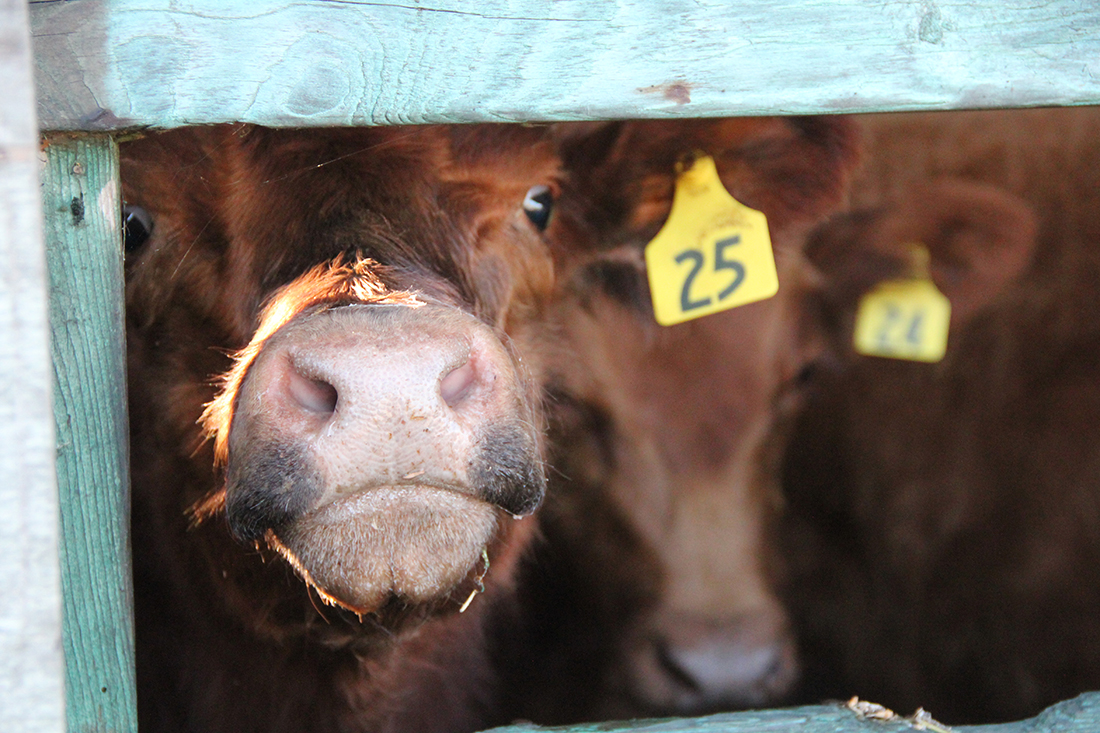BC ranchers Raelynn Blumhagen and Morgan Kitchen are two of 24 semi-finalists for this year’s Cattlemen’s Young Leaders mentorship program, an initiative of the Canadian Cattle Association.
Blumhagen ranches with her family at Jaffray. A fourth-generation farmer, she is raising the fifth generation while running about 400 cow-calf pairs on 1,200 farmable acres.
The semi-finalists were chosen by a panel of judges who reviewed written applications.
Sixteen finalists will be chosen based on judged roundtable discussions about pertinent topics in the beef sector such as succession planning, animal health and sustainability at the Canadian Beef Industry Conference in Penticton, August 16-18. The in-person judging will be the first for the program since 2019.
Following the conference, finalists will be paired with an industry leader for nine months to explore their specific areas of interest.
“We have a great group, and we are very happy to see the quality of applicants that were interested in the program this year,” says the Canadian Cattle Association’s youth leadership coordinator Jessica Radau.
“Mentorship plays a really important role in how we build up the next generation of the beef industry,” she says. “It’s an important tool in how we transfer the skills and knowledge of leaders in the industry onto the future that is going to continue to drive this work.”
The program also enables young people in the beef industry from across Canada to connect and build relationships.
If chosen, Blumhagen would like to learn more about policy and management practices and “how the industry is all kind of tied together through government relations and the different ways that cattle can be impacted by different situations and scenarios.”
She says a mentor would allow her to learn “from somebody who has experience doing different things and can teach me more than what I’ve learned … farming and ranching with my family.”
She looks forward to “seeing what other opportunities there are to digress and change as the times go but keep the small-farm mentality at the same time.”
Blumhagen would also like to delve into topics surrounding herd health and programs that ranchers use to ensure a healthy breeding program.
Kitchen was not available for a comment.
The program’s 2021-2022 participants from BC found networking to be the most valuable takeaway from the last nine months.
“I feel like my contacts from the industry have grown so much,” says Janine Rubin of Rose Prairie. “It’s really nice to have those contacts who I can call if I need advice or a second opinion on something.”
Rubin also learned a lot during her trip to Waldron Ranch Grazing Co-operative located just south of Longview, Alberta.
“I really enjoyed seeing the cattle handling system at Waldron Ranch and learning about other CYL’s cattle handling systems. I hope I can use these ideas in the future on the farm,” Rubin says. Waldron Ranch general manager Mike Roberts also had a profound lesson for CYL participants.
“He reminded us that attitude is everything, and don’t be afraid to be a risk-taker. I really remembered that, and it stuck with me that it’s okay to do things differently,” Rubin adds.
Amanda Miller of Lumby examined the conservation and policy aspects of the beef industry during her time in the CYL program. She found the opportunity to make industry connections valuable for her career moving forward.
“I have a strong policy interest in what we can do to maintain the beef industry and be able to really highlight the relationship between Canadian beef production and grassland conservation,” Miller says. “I want to refocus on something that can be more impactful and maybe do some work to really help the beef industry maintain its economic viability and competitiveness … and work to conserve the native grassland systems that we have.”
CYL members wrapped up their tenure on July 31, but will officially graduate during the CBIC on August 16.


 Producers take steps against heat
Producers take steps against heat